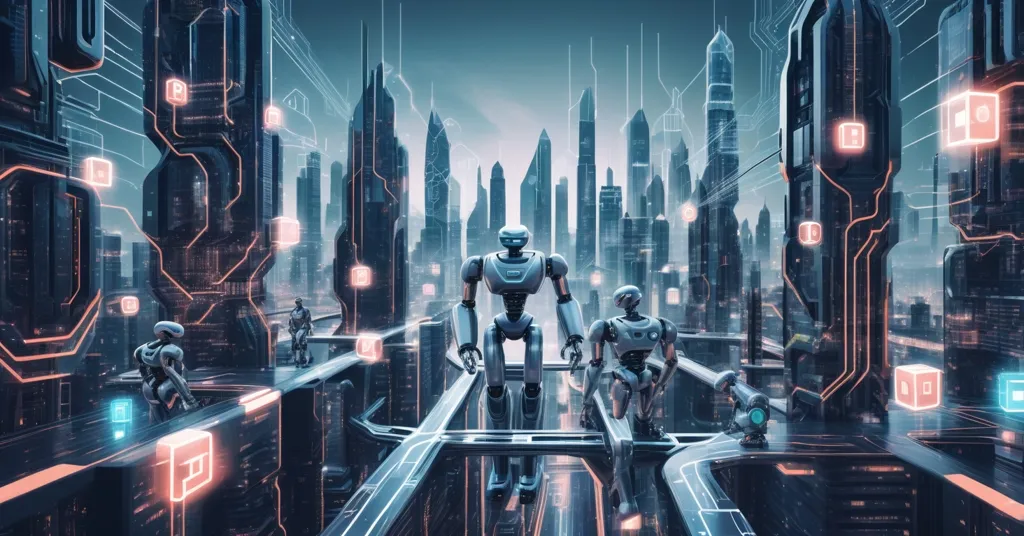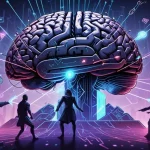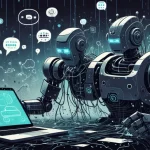DeepSeek’s R1 Outpaces ChatGPT: Why Blockchain is Crucial for AI Security

The Future of AI: Why Blockchain Integration is Essential for Trust and Security
In January 2025, DeepSeek’s R1 became the most downloaded free app on the US Apple App Store, surpassing even ChatGPT. This milestone not only showcases the growing appeal of open-source AI models but also underscores their potential to disrupt the tech landscape. Yet, as exciting as this is, it’s crucial to acknowledge that open-source AI isn’t without its challenges. Security and ethical concerns loom large, threatening to undermine the very essence of these models. The real game-changer? Integrating blockchain technology to secure and verify AI models, ensuring they remain trustworthy and transparent.
- DeepSeek’s R1 surpasses ChatGPT in downloads
- Open-source AI fosters accessibility but poses risks
- Blockchain integration is crucial for AI trust and security
DeepSeek, founded by Liang Wenfeng and part of the High-Flyer hedge fund in China, developed R1 at a fraction of the cost of competitors. Their model, costing just $5.6 million to create, showcases the power of open-source innovation. As Marina Zhang, Associate Professor at the University of Technology Sydney, notes, “DeepSeek’s focus on software-driven resource optimization sets it apart.” Yet, with great power comes great responsibility. Open-source models like R1 and Replit’s Agent, which lets non-coders build software from natural language prompts, are more accessible but also more vulnerable to cyber risks and misuse.
Consider this: open-source AI is like a wild party—everyone’s invited, but who knows what might happen when you leave your drink unattended? The xz Utils backdoor attack in 2024, where a malicious actor infiltrated open-source software, is a stark reminder of these risks. With 82% of open-source software components considered inherently risky due to poor maintenance and security flaws, the need for robust security measures is clear. It’s akin to building a house with a strong foundation but leaving the doors unlocked.
Anthropic’s release of Claude 3.7 Sonnet in February 2025 further highlights the trend toward open-source AI. This hybrid reasoning model, partially open for research previews, is a testament to the push for greater transparency in AI development. However, as Martin Woodward, VP of Developer Relations at GitHub, reminds us, “Open-source software forms the backbone of nearly all software today, making its security critical.”
So, how can we ensure that the AI models we use every day stay secure? The answer lies in blockchain technology. Blockchain can certify that AI models remain unaltered, track modifications, validate outputs, and ensure transparency and accountability. By weaving in cryptographic proofs and decentralized governance, we can build an AI ecosystem that’s open, secure, and less beholden to centralized giants. David Pinger, co-founder and CEO of Warden Protocol, a company focused on bringing safe AI to web3, emphasizes this point: “The future of AI and its relevance will be built on trust, not just accessibility.”
This integration of blockchain with AI isn’t just theoretical. It’s about capturing training data origins, rewarding contributors, and mitigating biases, all while protecting user data. The potential of blockchain to enhance the ethical use of AI is immense, and it’s a direction we’re already seeing explored in various projects. Projects like SingularityNET and Ocean Protocol are leading the charge. SingularityNET uses blockchain to create a decentralized marketplace for AI services, while Ocean Protocol focuses on data sharing and monetization. These initiatives demonstrate the practical application of blockchain in enhancing AI security and ethics.
Looking ahead, the integration of blockchain with AI could have significant industry impacts. From healthcare to finance, the ability to verify and secure AI models could revolutionize how we use and trust AI. However, challenges such as scalability and the learning curve for developers must be addressed to fully realize this potential. It’s like trying to fit a square peg in a round hole—possible, but it takes some work.
While the future of AI seems bright with blockchain integration, it’s not without its dark sides. We must remain vigilant against the potential for misuse and the ever-present threat of cyber attacks. As champions of decentralization and privacy, we must also ensure that these technologies do not fall into the wrong hands. Bitcoin maximalists would argue that the ethos of decentralization is at the core of blockchain, and it’s essential that we apply this philosophy to AI as well. Yet, we cannot ignore the roles that other blockchains and systems like Ethereum play in this financial and technological revolution. They fill niches that Bitcoin, with its focus on being the future of money, might not serve well.
Key Takeaways and Questions
- What is the significance of DeepSeek’s R1 surpassing ChatGPT in downloads?
It highlights the growing popularity and potential of open-source AI models, which offer greater accessibility and lower development costs compared to proprietary models.
- How does open-source AI contribute to innovation?
Open-source AI allows smaller companies, startups, and independent developers to build new specialized AI applications at a lower cost and faster rate, fostering a new AI economy.
- What are the security risks associated with open-source AI?
Open-source AI models are more vulnerable to cyber risks, as malicious actors can exploit vulnerabilities or modify the models to craft malware.
- Why is blockchain technology important for AI verification?
Blockchain can certify that AI models remain unaltered, track modifications, validate outputs, and ensure transparency and accountability, which are crucial for building trust in AI.
- How can blockchain enhance the ethical use of AI?
By capturing training data origins and rewarding contributors, blockchain can help mitigate biases and protect user data, promoting ethical AI development and use.
- What is the future of AI according to the article?
The future of AI will be built on trust, which requires verification and security measures like those provided by blockchain technology, rather than just accessibility.



